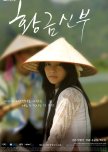 Current Asian Drama Gems
Current Asian Drama Gems Maiko ha 24 anni e non ha mai avuto un fidanzato. Una volta, su consiglio di suo padre, incontra Harumi. Ha 44 anni ed è divorziato. All'inizio Maiko non voleva uscire con Harumi. Tuttavia, si innamora di lui dal primo incontro: è un uomo maturo e ha un bell'aspetto. Nel frattempo, Harumi non vuole davvero uscire con Maiko, ma non può rifiutare suo padre, che è un cliente importante. Pensa che la rinuncerà al primo incontro, ma la ragazza gli è davvero piaciuta. Al terzo appuntamento gli consegna i documenti per la registrazione del matrimonio. Harumi e Maiko si sposano e la loro vita coniugale inizia con una differenza di 20 anni. (Fonte: doramatv.live) Modifica la Traduzione
- Italiano
- 한국어
- 日本語
- Русский
- Titolo Originale: 年の差婚
- Conosciuto Anche Come: Marriage with a Large Age Gap , May December Couple , May-December Marriage , Toshi no Sakon
- Regista: Hiroki Ryuichi
- Sceneggiatore: Matsui Kana
- Generi: Romantico
Dove Guardare Differenza di Anno
Cast & Ringraziamenti
- Aoi WakanaMurakami MaikoRuolo Principale
- Takezai TerunosukeHanasato HarumiRuolo Principale
- Matsumoto WakanaNishikawa Miyuki [Harumi's ex-wife]Ruolo di Supporto
- Onodera AkiraRionRuolo di Supporto
- Yoshino HokutoIchinose Sean / Tago Mokichi [Maiko's college classmate]Ruolo di Supporto
- Kawai AobaTakeda YukariRuolo di Supporto
Recensioni

Age Gap Marriage
Toshi no Sakon, which translates to age gap marriage, struck me with its cinematography. It's beautifully shot, and I liked how vague the first five minutes were about the identity of Murakami Maiko's (Aoi Wakana) husband. I found some elements of the show refreshing, despite some other elements being a typical Japanese rom-com genre where a sheltered female who has never been in a relationship meets a handsome young man, falls in love, and the end of the story. Where Toshi no Sakon is different is that things happen in reverse. The sheltered girl is more or less forced to go to an arranged marriage matchmaking session. When she meets her match, she is instinctively attracted to him and his agreeable nature despite the huge age difference. Because Hanasato Harumi (Takezai Terunosuke) decides to only meet her to appease his client Murakami Genichiro (Fukikoshi Mitsuru), Maiko's father, is taken by her forwardness. Before we know it, they are married, which is intriguing about this story.I liked Maiko as a character, and Aoi Wakana for her ability to portray Makio in a way that made me believe in her sincerity, innocence and maturity despite her young age, and for boldly pursuing her heart's desire in a culture where one, especially a female, isn't always open about their emotions. She even initiates the first kiss before their third date, and practically proposes to him. But what I enjoyed most about her was her loudly expressing her inner voice, which probably endeared her to Harumi for being the complete opposite of him. As for Harumi, I admired his honesty and how amiable he was to Maiko despite being much older and more set in his ways, as well as how intrigued he was both physically and mentally. I can't even say it was simply opposites attracted. It was much more than that. It was like the old age meeting the new age and forming an intergenerational connection bound by the differences rather than pulled apart.
I think if Toshi no Sakon had just stopped at that, it would have been your average rom-com with an age gap. But the fact that it dived into the fears and insecurities Maiko faces in her inexperienced love versus Harumi experienced one, and his insecurity with his age and fear of not being able to compete, and the very realistic way the show addresses those insecurities from the Japanese presepctive, is what made Toshi no Sakon stand out even if from my cultural standpoint I may not have understood but that's okay since the show was not for my perspective I still liked and respected the options and directions it takes. The trail and tribulations Maiko and Harumi face as they attempt to measure up to what they each believe are their shortcomings, and the ways the drama tackles and addresses those trials in age, societal and cultural differences, terminology, not only from the perspective of an older man and younger woman, but also from the perspective of an older woman and younger man, and how the intergenerational gap experience despite being the same affects men and women of the same age differently.
The message Toshi no Sakon is so simple -- open dialogue is essential for experiencing, expressing, and fostering love in marriage. Despite men and women, be they younger or older, acting differently and communicating in different ways, be it in tone or attitude, the need to develop certain attitudes that express love and encourage authentic dialogue is key. Often, spouses, regardless of age, aren't necessarily looking for their other half to find a resolution; they want to know their partner is paying attention to them and acknowledges their fears and insecurities. And most importantly, not to let societal or cultural differences be they in age or otherwise, limit them or dictate their happiness, because the combination of two different ways of thinking, rather than hindering, can be the source that elevates them to the next level of their co-existence and ultimately their happiness. I highly recommend it. I enjoyed this short but very sweet drama.
Questa recensione ti è stata utile?
Questa recensione può contenere spoiler
Good short watch
What I liked about the drama here was that it did not really affect Harumi and Maiko’s relationship - no breaking up or big fights due to misunderstanding, or jealousy when the exes and the pasts appeared. They remained trusting of each other but it was also nice to see their insecurities and jealousies which was a natural reaction but they did not let it influence them in making irrational decisions.Maiko’s two pasts were such annoying characters - I think the only ones that I didn’t particularly care for in the whole drama. But it was good to watch how Maiko and Harumi handled the situation.
Questa recensione ti è stata utile?

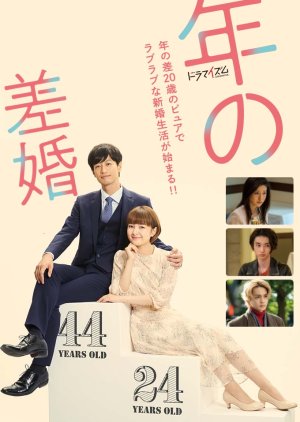










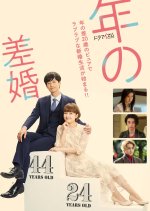

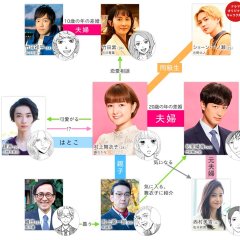
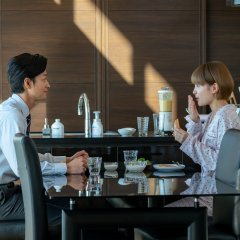
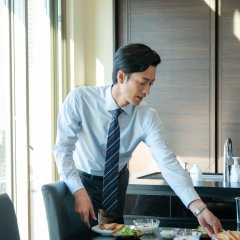
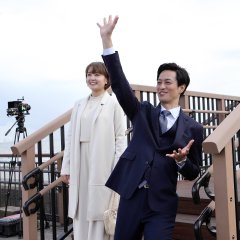
 1
1

















